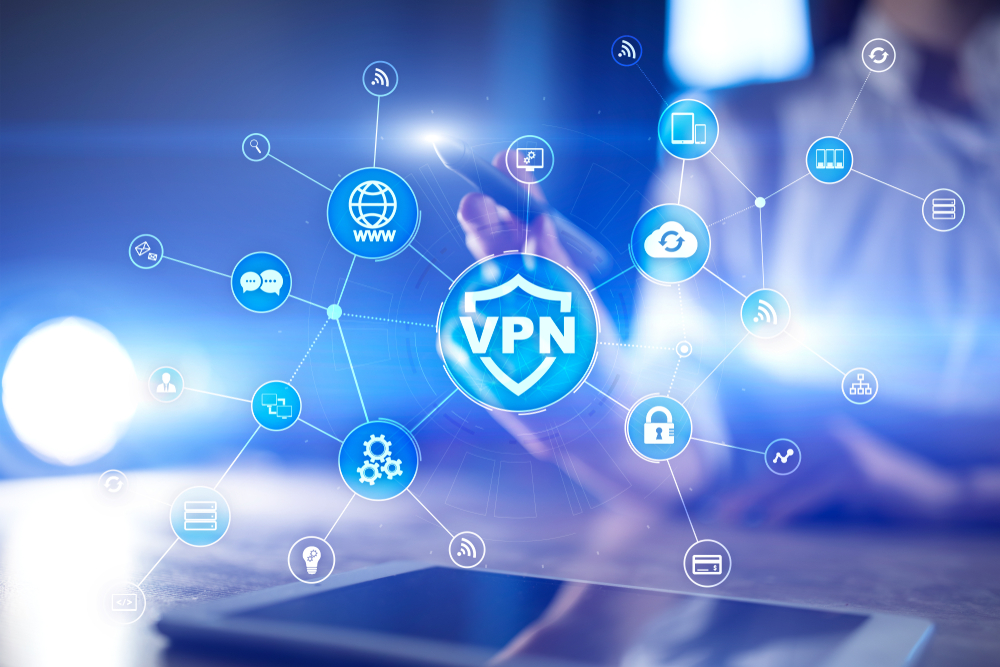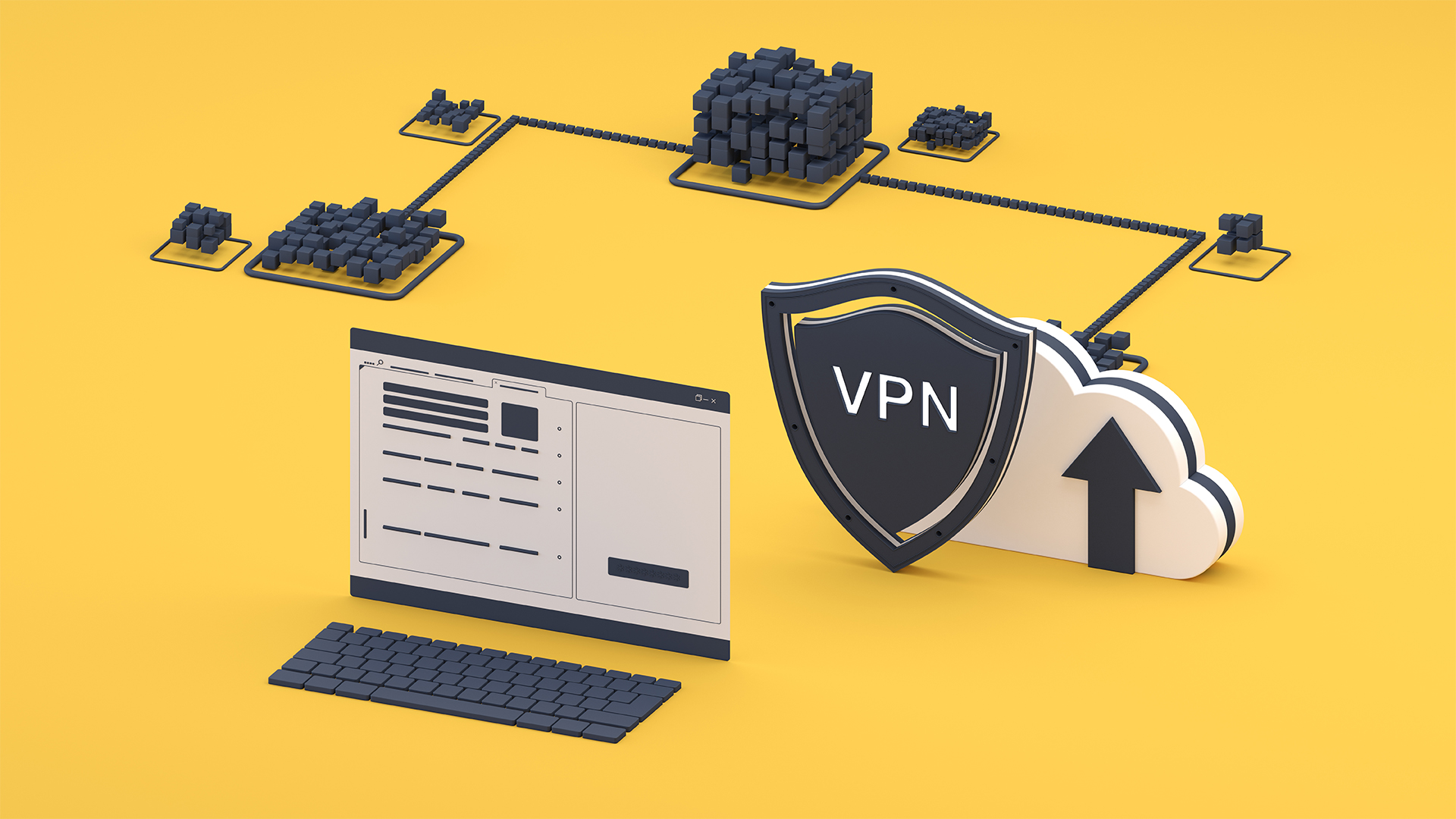Sponsor Content Created With Proton AG
What role does a VPN play in modern business?
Businesses wanting to protect sensitive data need to consider how they protect their data in motion as well as at rest

With the growth of remote and flexible working in recent years, more and more organizations have turned to Virtual Private Networks (VPNs) as a tool to allow people to work and access critical work systems remotely while reducing the risk of interception.
VPNs are a vital tool in any organization’s cybersecurity toolbox; while a lot of emphasis is placed on protecting data where it’s stored – known as data at rest – less thought can be given to protecting that information when it’s being accessed over a network.
A December 2024 study looking at the increase in the use of VPNs since 2020 said: “The shift from secure, internal corporate networks to decentralised, often unsecured home networks has created new vulnerabilities. As a result, businesses have faced a surge in cyberattacks, such as ransomware, packet sniffing, and man-in-the-middle attacks. These cyber threats exploit weaknesses in remote work infrastructures, putting sensitive company data, intellectual property, and employee information at significant risk.”
One way businesses have successfully sought to fight back against these sorts of threats is by using a VPN.
The role of VPNs in today's business landscape
VPNs may not be necessary for absolutely every business, notably if they do not need to send data over a network. For the vast majority, however, VPNs could allow them to increase their overall security posture, improve privacy and protection of sensitive information, and securely manage a hybrid workforce’s access to the corporate network far more efficiently.
VPNs work by offering a secure way to connect to another network over the internet by routing traffic through a specific tunnel and encrypting it. This fundamental mechanism unlocks plenty of benefits for distributed businesses, organizations with multiple branches, or those working with sensitive data.
Different businesses in different sectors may have different reasons for adopting a VPN, and the number of areas where they are used is growing. Finance and banking, healthcare, legal, and education are all industries that have long made use of VPNs. Increasingly, organizations in manufacturing, retail, IT, the creative industries, and beyond are adopting VPNs to protect their sensitive data.
In retail, for example, a business may want to protect customer data, secure payment processing, or manage operations across different branches securely and through a centralized system. Legal firms may want to allow lawyers to work remotely – be that from home or a client location – or collaborate from different geographies on cases.
In manufacturing, organizations may adopt a VPN to ensure their data is protected and compliant with legal safeguarding requirements, or to protect valuable IP from interception. VPNs also allow businesses to communicate securely with partners or suppliers, which is a use case that spans multiple sectors.
The benefits of Proton VPN
While there are plenty of candidates for businesses to choose from, Proton VPN for Business is tailor-made to deal with the key use challenges that organizations face in 2025 and beyond.
The improved security posture that Proton VPN offers is due both to the encryption it affords all business traffic and the data breach mitigation it offers. The activity monitor feature, for example, tracks all user activity and ensures compliance with security policies. It can also detect threats like unauthorized access or credential misuse. It also allows individual users to see whether their own accounts have been compromised. This is a crucial component of Proton VPN for Business because of the increasing threat that data breaches represent, as well as the associated high costs, with a global average of $4.4 million in 2025. Adopting Proton VPN for Business also improves privacy, given that the company is based in Switzerland, which is governed by extremely stringent and beneficial privacy and data protection laws.
This comes alongside simplified access control, with tools like single sign-on (SSO) and IP allowlisting. Deploying the VPN is also incredibly simple, taking minutes rather than days, and will allow workers from all around the world (if need be) to access centralized enterprise systems securely. This is a key benefit of adopting a VPN like Proton VPN for Business, allowing organizations to maintain hybrid and flexible working arrangements that employees crave.
How businesses are using Proton VPN
Different kinds of businesses use Proton VPN to solve a variety of challenges in 2025. For example, the small business Bitweaver Media, a Californian digital consulting agency that helps businesses streamline operations with virtual staff and automation, needed a scalable and secure way to give international virtual employees access to US-based systems and city portals that block foreign IPs.
Bitweaver Media's founder and CEO, Thomas Caragan, explored several methods to resolve the problem, including setting up dedicated physical servers that all employees could log into remotely, but the costs were prohibitive. Cloud-based solutions like AWS and Google Cloud were also on the table, but these options proved overly complex for the scale of the business.
When a friend in IT recommended Proton VPN, Caragan realized it offered exactly what he was looking for. The benefits included secure and encrypted access to US systems, the option to pick servers by location, standardizing logins to Pacific Time, as well as scalable pricing that allowed him to remove or add users as required.
The nonprofit organization Ocean State Center for Independent Living (OSCIL), meanwhile, needed to find a way to let staff access personal data while working remotely or on public networks, where the risk is much higher. OSCIL knew a VPN was the right solution, but considered several providers before choosing Proton VPN due to its privacy-first and open source approach. In particular, it was key to choose a secure VPN that could back up the claims of security, which all providers make, with hard evidence.
"I like the open source aspect, as somebody who runs open, vetted systems," said John Valletta, IL Coordinator and Technology Coach with OSCIL. "After some research for security purposes, we wanted to make sure it was verified, and some of these other companies are not. I understand some of the others' prices may have been cheaper, but as a company, the price of our data is more important."
ProtonVPN offers a variety of different business plans for organizations of all sizes, with transparent and flexible pricing with capacity that can be scaled up or down as needed. Try Proton VPN for Business today or contact the sales team to start a conversation about your organization's needs and the best way to integrate a business-focused VPN.
Sign up today and you will receive a free copy of our Future Focus 2025 report - the leading guidance on AI, cybersecurity and other IT challenges as per 700+ senior executives
ITPro is a global business technology website providing the latest news, analysis, and business insight for IT decision-makers. Whether it's cyber security, cloud computing, IT infrastructure, or business strategy, we aim to equip leaders with the data they need to make informed IT investments.
For regular updates delivered to your inbox and social feeds, be sure to sign up to our daily newsletter and follow on us LinkedIn and Twitter.
-
 How to MFA everywhere
How to MFA everywhereIndustry Insights Identity online is not who you are; it is what the system accepts as proof of you, and that gap is exactly what the attackers take advantage of
-
 ExpressVPN updates Windows app to fix vulnerability
ExpressVPN updates Windows app to fix vulnerabilityNews The flaw was reported through ExpressVPN's bug bounty program
-
 Edge devices are now your weakest link: VPNs, firewalls, and routers were the leading source of initial compromise in 30% of incidents last year – here’s why
Edge devices are now your weakest link: VPNs, firewalls, and routers were the leading source of initial compromise in 30% of incidents last year – here’s whyNews Compromised network edge devices have rapidly emerged as one of the biggest attack points for small and medium businesses.
-
 Hackers are targeting Ivanti VPN users again – here’s what you need to know
Hackers are targeting Ivanti VPN users again – here’s what you need to knowNews Ivanti has re-patched a security flaw in its Connect Secure VPN appliances that's been exploited by a China-linked espionage group since at least the middle of March.
-
 So long, Defender VPN: Microsoft is scrapping the free-to-use privacy tool over low uptake
So long, Defender VPN: Microsoft is scrapping the free-to-use privacy tool over low uptakeNews Defender VPN, Microsoft's free virtual private network, is set for the scrapheap, so you might want to think about alternative services.
-
 Five Eyes cyber agencies issue guidance on edge device vulnerabilities
Five Eyes cyber agencies issue guidance on edge device vulnerabilitiesNews Cybersecurity agencies including the NCSC and CISA have issued fresh guidance on edge device security.
-
 The state of zero trust transformation, 2023
The state of zero trust transformation, 2023whitepaper From prevention to enablement: Leveraging the full potential of zero trust for the highly mobile and cloud-centric enterprise
-
 A brief history of zero trust
A brief history of zero trustwhitepaper The cybersecurity game changer, from concept to cornerstone



